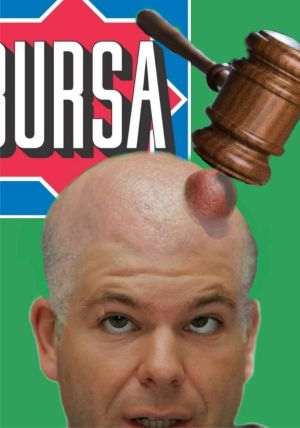I don"t know if there are any idealists left to believe that the attack on Libya pursues the ideals of democracy and the removal of a bloody dictator. After all dictators are created by feeding their ego.
The set up of a no-fly zone did not lead to the downfall of Saddam Hussein, which only came after the American troops entered the territory of Iraq in 2003. Four years later, in his memoirs, Alan Greenspan admitted that the real reason for which the war was waged was oil.
Now things are moving faster. Democrat congressman Edward J. Markey, a member of the Committee for Energy and Trade of the House of Representatives, stated that "we are in Libya because of oil".
"Congress needs to be summoned in session immediately to authorize the action against Libya", Democrat congressman Dennis Kucinich also said. "If it doesn"t, the presidents" action violates article 1, Section 8 of the US constitution, which clearly states that only Congress has the right to go to war", Kucinich said in his call to the leaders of the American congress.
Could that be all, a "mere" violation of the US Constitution, which has become common practice over the last few decades? But what if the new war is just a beginning of the knee-jerk reactions of the governments of developed countries, amid the unprecedented rise in the size of their sovereign debt? This seems like the most plausible scenario, as nobody seems to be able to define the purpose of the military intervention, aside from the hypocritical statements about democracy and the protection of civilians, which would be more at home in a second rate reality show.
The riots in Libya began amid the escalation of tensions in the area, generated by the collapse of the standard of living, as a result of the skyrocketing in the price of food and energy. Those who read the latest report of the IMF on the situation in Libya, published on its website on February 15th, 2011 (author"s note: the day when protests against the government began in Libya), must be very surprised by the current turn of events.
The report states that "The Executive Directors appreciate Libya"s strong macroeconomic performance, the progress it has taken towards the improvement of the role that the private sector plays, and the implementation of the reforms for the diversification of the economy", and "the outlook on Libya"s economy remains favorable".
The same frame of mind may have dominated the high level EU-Africa summit, which was held in Tripoli between October 29th - October 30th 2010, with the theme "Investment, economic growth and job creation". The reunion ended with the adoption of a strategic common action plan until 2013. Were the bombardments on Libya part of that plan? They probably weren"t, or else we wouldn"t have seen Herman Van Rompuy, the EU president, in a photograph with his friend Gaddafi.
Aside from investments and economic growth, the relations between the main EU member states and Libya were also based on more pragmatic things, such as weapons trade. A few days ago, British paper The Guardian published some very interesting statistics concerning Libya"s weapons imports since the embargo was lifted in 2004. Between 2005 and 2009, the EU granted licenses for weapons exports to Libya worth 834.5 million Euros. The four largest exporters of weapons to Libya were Italy (276.7 million Euros), France (210.15 million), Great Britain (119.35 million) and Germany (83.48 million).
It is pointless and tardy to ask rhetorical questions along the lines of "what, they didn"t know he was dictator back then?". The intervention in Libya takes place as the economic situation is worsening in Europe and the United States, amid deepening inflationary pressure.
Oil and natural gas play a crucial role in this play with far too many shadows. Between 2004 and 2009, Libya almost doubled its natural gas output, up to 15.3 billion cubic meters, and its estimated reserves were 1.54 trillion cubic meters. During the same period, the average oil production was 1.74 million barrels a day.
According to data from the international press, France imports 10% of its oil consumption from Libya, whereas Italy imports 20% - 25%. Their attitude when it came to Gaddafi"s reaction to the escalation of the protests in his country led him to respond bluntly: "Our oil contracts will go to companies of Russia, China and India. The West will be forgotten", he said in an interview to TV station RTL. According to an article by Reuters, he added that we do not trust their companies "because they have conspired against us".
Will the triumph of democracy lead to a drop in the price of oil? Naturally, the answer is no, because the main reason for its rise is the accelerated depreciation of the dollar. Until Ben Bernanke remembers to press the button that turns off the money printer, there are no chances of commodity prices going down, especially energy and food.
Just a few days before the beginning of the military operations against the Tripoli regime, British MEP Nigel Farage asked president Herman Van Rompuy to oppose the military intervention, because "there is no legitimacy or consensus on the military action of the EU".
Unfortunately, the intervention of Eurosceptic Farage is merely rhetorical. Behind the smokescreen and the "legitimacy" granted by a resolution of the "United Nations", the entire European edifice is ready to crumble under the burden of debt.
Ireland"s short term borrowing cost rose to a historic high amid market speculation about an imminent default, and inflation in Great Britain has forced the government to reorganize the indexing of pensions based on a more "favorable" price index. As a result, the government will "save" more than 200 million sterling pounds a year, according to an article in The Telegraph daily, and retirees will undoubtedly be happy that their money will be "invested" in bombs for bringing down ruthless dictators.
It is the same frugal mentality which inspires Hans-Jörg Rudloff, the president of the Executive Committee of Investment Bank Barclays Capital, which presented his solution for Europe"s problems in an economic forum held in the Czech Republic.
After stating that "Europe is carrying a social rucksack, which makes us uncompetitive in this world", and "Populations are not ready to voluntarily discipline themselves in more work, less rewards, and less security", Rudloff exposed his vision: half of the social benefits in the EU have to go, people have to work more, longer hours, longer years, and the authorities need to promote communication and the free movement of people which will push to a much stronger union.
What else is there left to say? Aside from his outrageous insolence, Rudloff conveniently forgets that the Western countries promised these benefits to conceal the systematic theft that they have perpetrated upon their citizens in the name of socialist utopias. Indeed, expenses need to be systematically cut, but perhaps it should begin by cutting off banks from living off and being rescued with the people"s money, under the pretense of national interest. In Great Britain alone, 1.376 trillion pounds out of a total public debt of 2.252 trillion, represents the debt accrued in support of the financial system.
After a few days of fireworks displays on TV (author"s note: to keep with the theme of cynicism and the hypocrisy of these "major powers"), Associated Press was already writing that "international support for the war in Libya has collapsed". Which should come as no surprise at all, as the entire operation looks like nothing less than the result of the hysteria of the French president, for whom a miracle would be the only thing that could earn him a second term.
Unfortunately, the hope for a quick ending of the Libyan conflict is vain. Gerald Celente, the director of Trends Research Institute, wrote a few days ago that "
Only in a mad political science fiction movie could a President engaged in perpetuating two unjust, immoral, interminable and expensive wars begun by his predecessor, take his nation into yet another unjust, immoral, expensive and, in all likelihood, interminable war and expect a happy ending! ". Celente"s description most certainly refers to a certain winner of the Nobel prize for peace, who went a little too far in his interpretation of the Roman adage "Si vis pacem, para bellum" (If you seek peace, prepare for war). According to Celente, what we are seeing these days is the beginning of the first great war of the new century.
China, Russia and Germany seem to be the best players of this strategic game. And as for Romania...
Note: the Article represents the author"s point of view, does not reflect or imply the opinions of the institution that employs him and does not represent an investment recommendation.







































